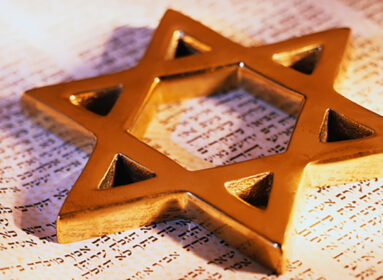By Rabbi Shlomo Riskin
“A new king arose over Egypt who did not know Joseph” (Exodus 1: 8)
Why is Joseph, the towering personality of the last four portions of the Book of Genesis, not considered the fourth patriarch of Israel? After all, he receives a double share of the inheritance through Manasseh and Ephraim, the two tribes who emanate from his loins – and it is he who saves his family, and thus the Jewish people, from starvation and oblivion.
Moreover, why does Moses emerge as the savior and redeemer of the Book of Exodus? What catapults this prince of Egypt to such an exalted position of Jewish leadership when he was raised in Pharaoh’s palace, sports an Egyptian name (Moses means “son” in Egyptian) and seems totally disconnected from Abraham, Isaac and Jacob?
Let us begin with Moses. I believe it was the great Prof. Nechama Leibowitz, of blessed memory, who pointed out that Moses is the great fighter against injustice, whether it is perpetrated by Egyptian (gentile) against Hebrew (Exodus 2:11), by Hebrew against Hebrew, or by Midianite (gentile) against Midianite (gentile).
When we remember how God declares that He chose and loved Abraham because he would teach later generations to “keep God’s way by doing acts of compassionate righteousness and moral justice,” and how in this manner, “all the nations of the world will be blessed through him” (Genesis 18:18, 19), we realize that by fighting injustice in all three of these spheres Moses is expressing a direct line of continuity with Abraham, the first Hebrew and the recipient of God’s covenant.
However, there is one category that is absent from Moses’s list: an injustice performed by a Jew against a gentile. Clearly, the Bible understands the necessity of acting against injustice no matter what the ethnic profile of either oppressor or victim, since the source of Moses’s commitment to strike out against injustice – in addition to whatever stories about Abraham he may have heard from his biological mother, Jochebed – was the example of his adoptive mother. This Egyptian princess flouted the cruel law of her father Pharaoh, risking her life, to save the Hebrew baby floating in an ark on the Nile River.
It is precisely this message of universality which the Bible expresses in the very first of Moses’s acts against injustice, when he slays the Egyptian taskmaster beating the Hebrew: “…And he [Moses] saw an Egyptian personage [ish] beating a Hebrew personage [ish] from amongst his [Moses’s] brothers. And he looked at that one [the oppressor] and at the other one [the victim], and when he realized that there was no [real] personage [ish], he slew the Egyptian and buried him in the sand” (Ex. 2:11,12).
Rav Naftali Zvi Yehuda Berlin, famed dean of the Volozhin Yeshiva, explains that the Hebrew word “ish” is the highest category of the various Hebrew terms for “man.” And, used to refer to both the Egyptian and the Hebrew, the word certainly conveys universal application. Moses was familiar with both Egyptian and Hebrew societies and recognized both the oppressor and the oppressed as having been important personages in their respective environments and communities.
But now that they had been thrust together as oppressor and victim, when Moses looked at each of them, he realized that each had lost his elevated status of “persona”; the very act of oppression demeans and demotes both perpetrator and sufferer, robs each of his status as having been created in the image of the Divine; there was longer an “ish” amongst them. And this would seem to be irrespective of who is the Egyptian and who is the Hebrew.
Rabbi Shlomo Riskin is chancellor of Ohr Torah Stone and chief rabbi of Efrat, Israel.







 Southern New England Jewish Ledger
Southern New England Jewish Ledger













